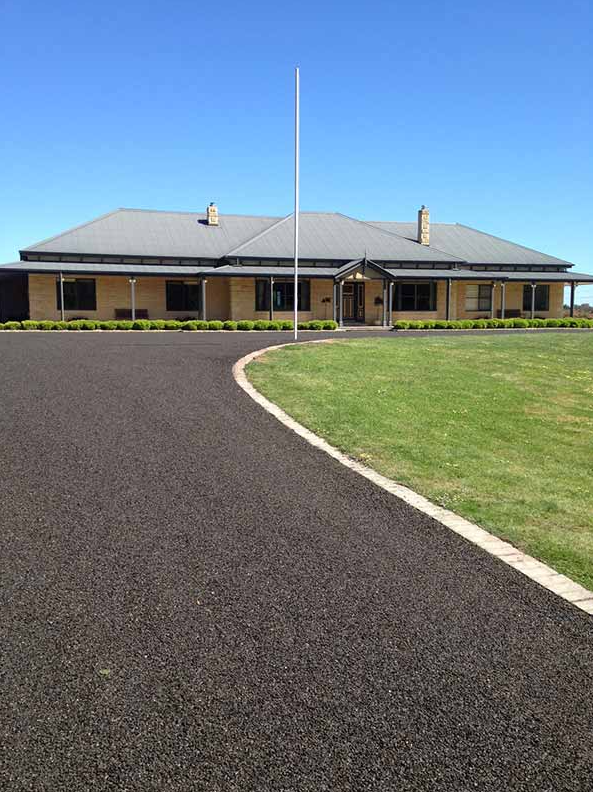Bitumen roads are a staple of modern infrastructure, offering a cost-effective and reliable surface for both urban and rural settings. However, even the most well-laid bitumen road can begin to show signs of wear over time—most notably, cracking. For property owners, councils, and site managers, understanding the causes of bitumen cracking and how to prevent it is essential to maintaining a safe and functional surface.
At Bendigo Road Tech, we specialise in creating and maintaining durable bitumen surfaces that withstand the harsh Australian climate and heavy use common in Bendigo, VIC.
Common Causes of Bitumen Road Cracking
Cracks are not just cosmetic—they are the early signs of structural breakdown. Left untreated, small cracks quickly evolve into potholes, edge failure, and dangerous driving surfaces. Understanding the causes helps identify potential issues early.
Temperature Extremes
One of the primary culprits behind bitumen cracking is exposure to extreme temperature changes. In hot weather, bitumen expands, and in cold weather, it contracts. Over time, this cycle causes fatigue and weakens the surface, leading to alligator cracking or longitudinal splits.
Moisture Infiltration
Water is the enemy of any bitumen surface. Once it seeps into small surface imperfections or existing cracks, it softens the base layers and causes the surface to deteriorate from below. In winter months, trapped water can freeze, expand, and force the bitumen to crack.
Poor Subgrade Preparation
If the ground beneath the surface hasn’t been properly compacted or stabilised, it can shift under pressure. These shifts apply stress to the bitumen, often resulting in uneven cracking or undulating failures.
Heavy Loads and Traffic Stress
Bitumen roads that frequently bear the weight of heavy vehicles or machinery can experience rutting and fatigue cracking. Without proper load design, the repeated stress leads to premature failure.
Ageing and Oxidation
Over time, bitumen hardens and becomes brittle due to oxidation from UV rays and exposure to air. Older surfaces lose their flexibility, making them more susceptible to cracking under even moderate pressure.
How to Prevent Bitumen Cracking
While cracking is common, it’s not inevitable. There are several proactive measures that can significantly extend the life of your bitumen surface and reduce the risk of failure.
Invest in Proper Surface Preparation
A strong surface begins with a well-prepared foundation. Ensuring the subgrade is compacted, levelled, and stable is essential. At Bendigo Road Tech, our team places great emphasis on preparing the ground to industry standards before any surfacing begins.
Apply Spray Seal for Extra Protection
Spray sealing is an effective method for enhancing the waterproofing and weather resistance of a bitumen surface. It forms an additional layer of protection, reducing the likelihood of water infiltration and UV damage.
Schedule Regular Maintenance
Routine inspections and preventative maintenance can help identify small cracks early and prevent them from spreading. Simple treatments like crack sealing, resealing, and minor resurfacing can significantly increase surface longevity.
Ensure Proper Drainage
Standing water accelerates surface breakdown. Bitumen roads should always be built with appropriate grading to direct water away from the surface. Effective roadside drainage is critical in places like Bendigo, where rainfall can vary across seasons.
Limit Overloading and Heavy Traffic Where Possible
If your road or driveway is not designed to accommodate constant heavy vehicles, it may be worth assessing load limits. Reinforcing the surface or upgrading to a higher-strength design may prevent stress-related cracking in the future.
Conclusion
Bitumen roads are durable and cost-effective when properly installed and maintained, but they are not immune to wear and tear. Cracking often signals a larger underlying issue, but with the right preparation, regular maintenance, and expert installation, these issues can be minimised or prevented entirely.
Call us on: 03 5609 3573
Click here to find out more about Bendigo Road Tech
Click here to complete our contact form and see how we can help with your driveway needs.

